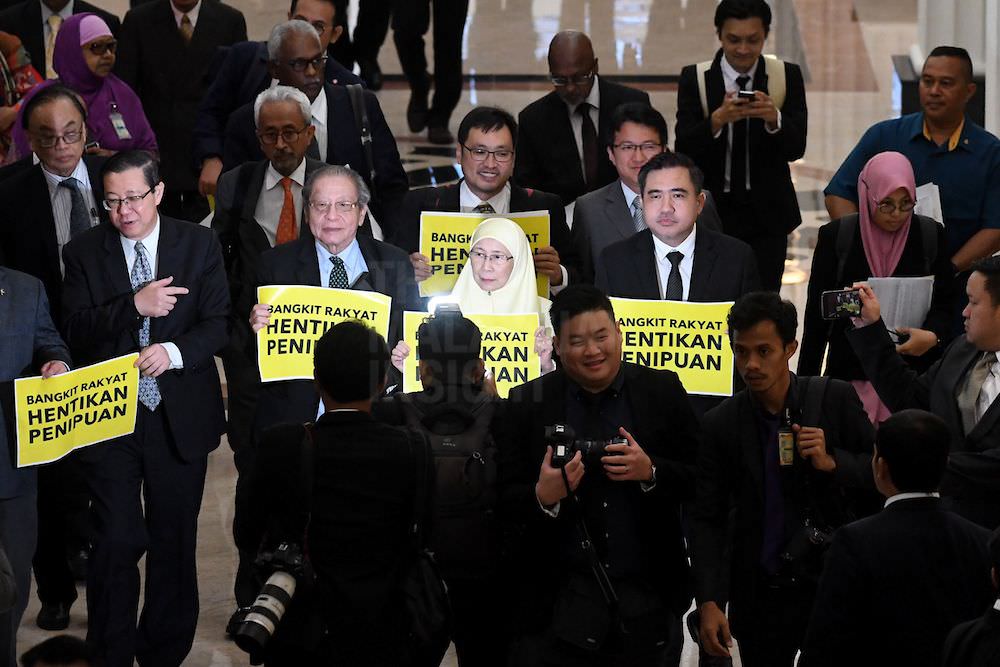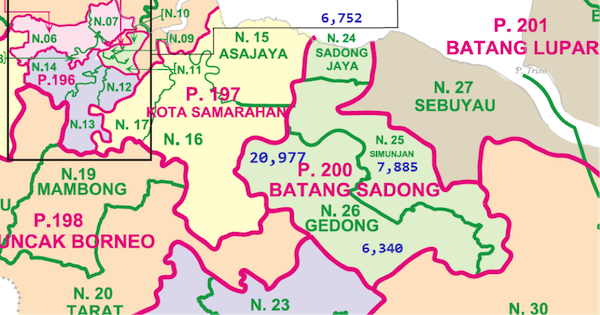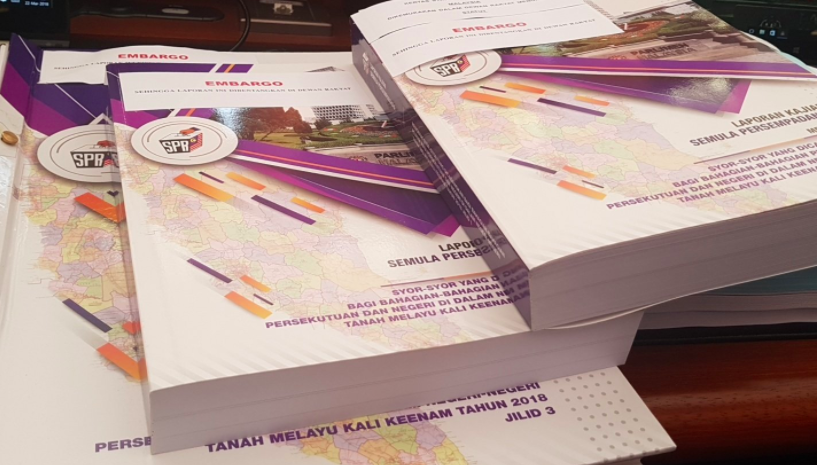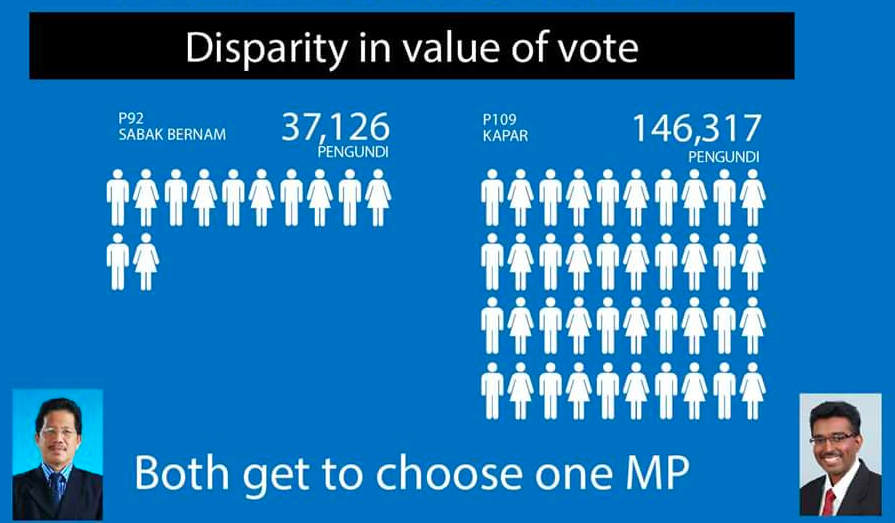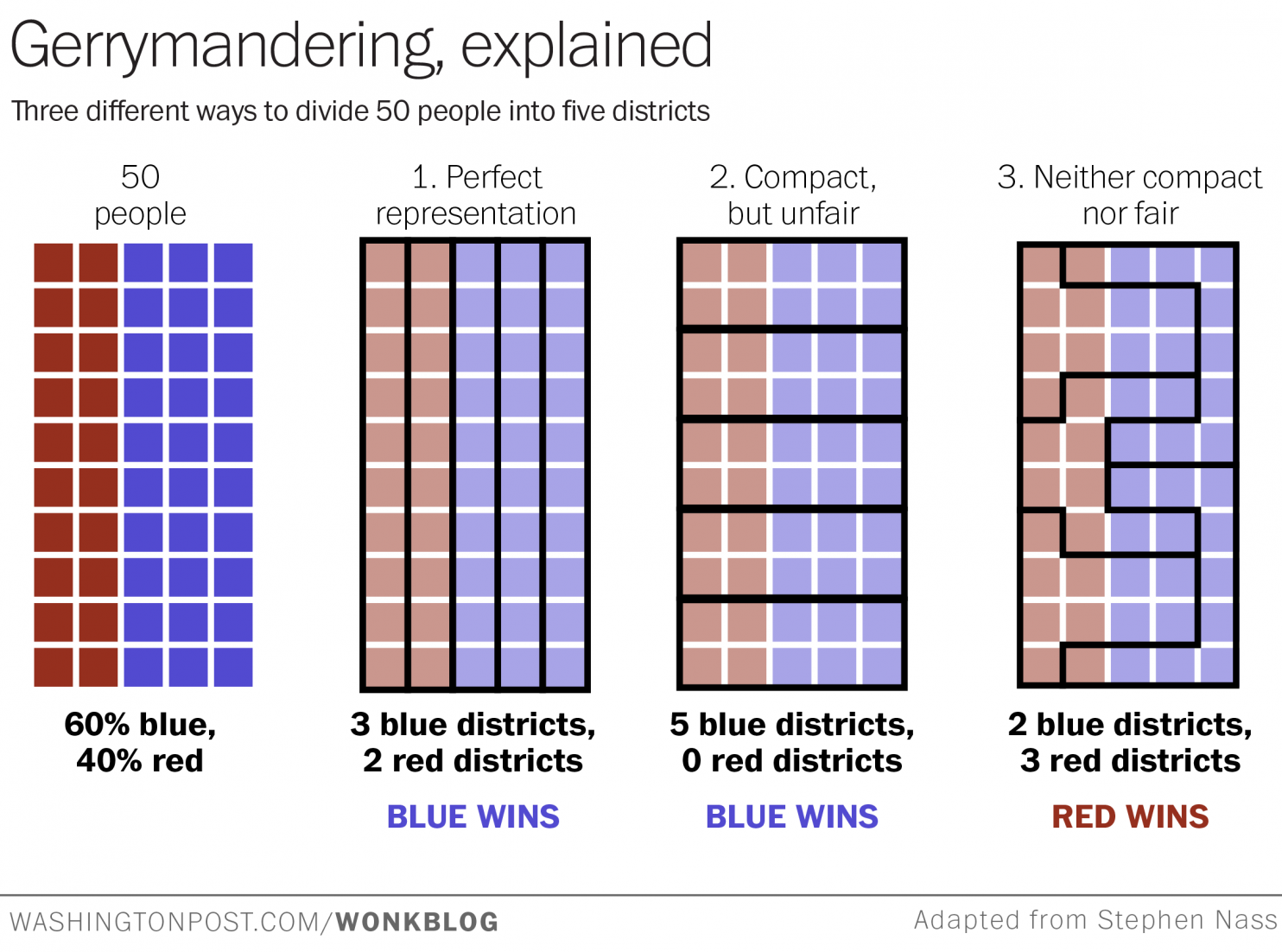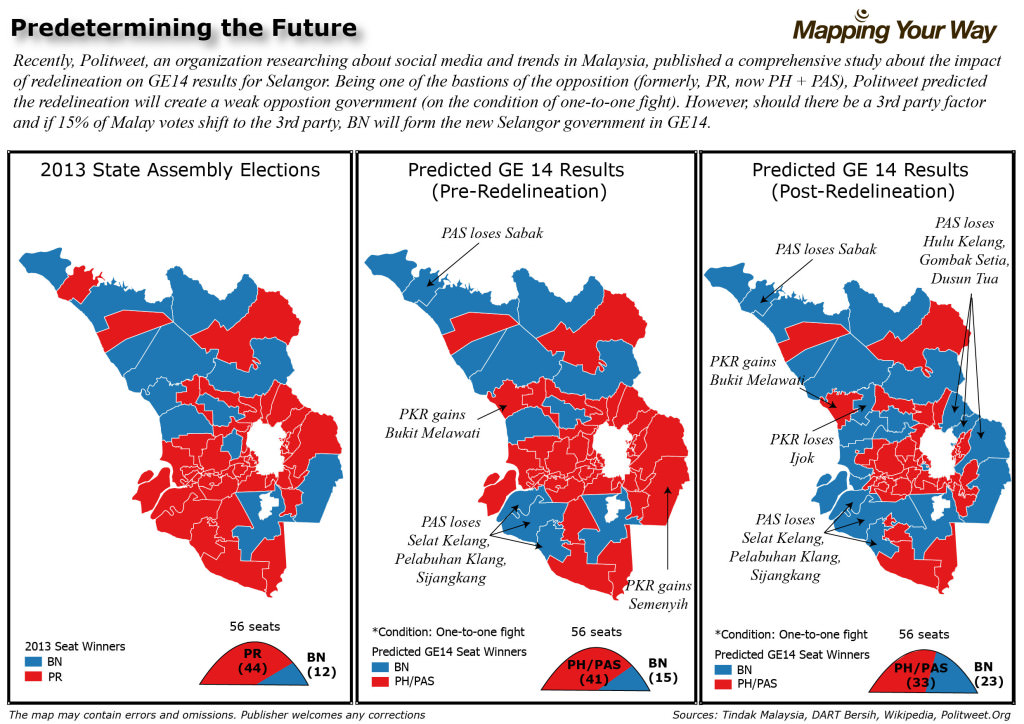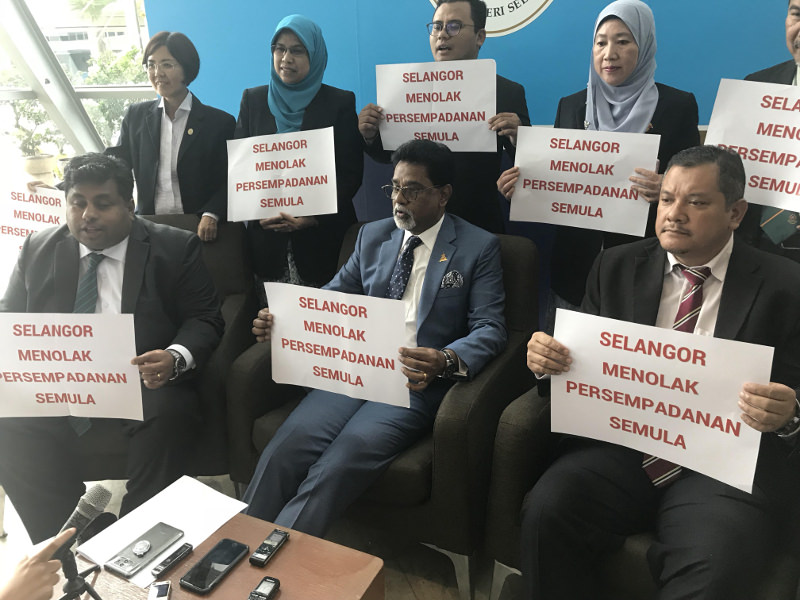5 Things You Should Know About EC's Redelineation Exercise & How It Affects Your Vote
The redelineation report was passed by the Dewan Rakyat yesterday, 28 March.
Yesterday, 28 March, the Election Commissions (EC)'s redelineation report was passed in the Dewan Rakyat
The report was passed with 129 MPs in favour, while 80 voted against it. Seven MPs from both government and opposition were allowed to debate for 10 minutes before the report was passed.
According to The Malaysian Insight (TMI), opposition MPs protested against the report after it was tabled at the Parliament yesterday.
Lim Guan Eng, Lim Kit Siang, and Datuk Seri Wan Azizah were among others who protested against the redelineation bill.
Image via The Malaysian InsightThe report will be presented to the Yang di-Pertuan Agong for his assent, and it will be gazetted into law once the assent is given. Here's all you need to know about it:
1. What is delineation?
Also known as delimitation, delineation is the drawing of electoral boundaries in order to prevent uneven distribution of voters across constituencies.
Simply put, delineation ensures citizens in each constituency are equally represented, regardless of its population. This is to avoid having a group of voters in one constituency being entitled to larger representation in government than other constituencies.
2. Why did the EC propose the redelineation?
The Star reported that the EC was considering the massive increase in number of residents and registered voters in Selangor, among other reasons.
The number of voters have also increased by 51.8% since the 2003 redelineation exercise.
Prime Minister Datuk Seri Najib Razak was also quoted by The Star as saying that the boundaries created by the 2003 redelineation have been used in the last three general elections.
"Seeing that the eight-year period has already passed, the EC therefore has conducted the redelineation exercise," he added.
3. Which state will be the most affected by this redelineation exercise?
Malay Mail Online (MMO) reported that the redelineation mostly changes the electoral boundaries in Selangor, with five parliamentary seats and nine state seats being renamed.
According to The Star, the top five constituencies that will experience the biggest growth in voters are:
- DAP - Damansara (76.16%)
- PKR - Petaling Jaya (62.6%)
- DAP - Beruas (55.05%)
- DAP - Klang (40.33%)
- DAP - Bukit Bintang (30.99%)
Malaysiakini reported that this scenario could lead to Barisan Nasional (BN) taking seven state seats from both Pakatan Harapan and Parti Islam Se-Malaysia (PAS) by default.
4. How can the growth in voters in a certain constituency lead to the win or loss of a party?
For this illustration, if you're voting in Kapar, the weight of your vote is only a quarter of another voter in Sabak Bernam.
Image via TwitterAlthough the delineation exercise aims to ensure voters are equally represented, it is impossible to have totally equal number of voters in each constituency as issues such as rural weightage and fair representation have to be taken into account.
The Malaysian Bar gave an example to illustrate this scenario. The electoral boundaries of a rural area cannot be too big, as it would be hard for a representative to reach out to all registered voters in that area.
However, this could be easily abused to give advantage to a certain party. After redelineation, a party could win in a constituency with fewer voters.
An NGO, Tindak Malaysia also published a comprehensive map of Selangor's electoral boundaries after redelineation.
They alleged that BN may take over the Selangor government despite winning fewer seats.
For a simpler depiction, here's a video on how the practice may affect constituencies unfairly:
5. Why are some parties opposing the redelineation exercise?
MMO reported that Bukit Gasing assemblyman Rajiv Rishyakaran claimed the redelineation will give BN an advantage in Selangor during the 14th general election (GE14).
Seri Andalas assemblyman Dr. Xavier Jayakumar was also quoted by MMO as saying that it was disrespectful of Parliament Speaker Tan Sri Pandikar Amin Mulia to allow the redelineation report to be tabled, as there were ongoing court cases against the exercise.
Yesterday, a group of Bersih supporters also protested against the exercise outside the Parliament, claiming that it will redraw electoral boundaries to create more ethnic majorities.
Furthermore, amidst accusations of increased ethnic segregation, EC chairman Tan Sri Mohd Hashim Abdullah told New Straits Times (NST) that the EC did draw constituency boundaries along racial lines.
"We cannot simply divide an ethnic group in any particular area," Hashim was quoted as saying by NST.
"We cannot put half of the community in one constituency and the other half in another. As best as we can, we try to keep them together," he added.
Earlier today, 29 March, the Court of Appeal denied the Selangor government's appeal to challenge the redelineation exercise
Free Malaysia Today reported Hashim as saying that the new electoral boundaries will be applied in GE14 once it is gazetted.
In a statement published by the Attorney General's Chambers, the Yang di-Pertuan Agong has ordered the redelineation to be enforced today, 29 March.
